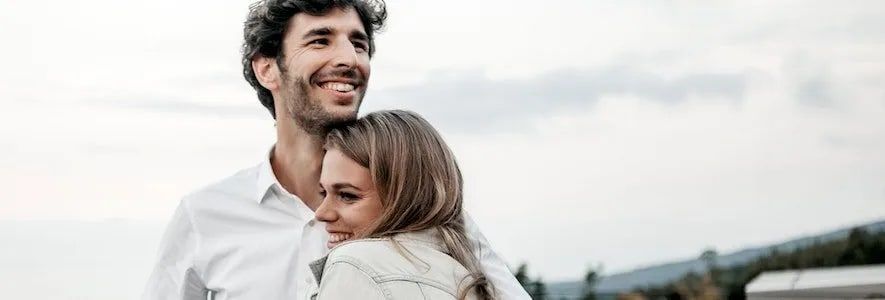Types of Addiction Treatment & Services in Atlanta
- Home
- Types of Addiction Treatment & Services in Atlanta
Recognizing that recovery is not a one-size-fits-all proposition, our drug and alcohol rehab in Atlanta offers an individualized yet comprehensive approach to addiction treatment. We provide specialized services for alcohol addiction, drug addiction, and even behavioral addictions.
In treating the many different kinds of addiction, Empowered Recovery Center offers a range of treatment approaches to support each patient’s unique recovery journey. This includes co-occurring disorder treatment, Medication-Assisted Treatment (MAT), and multiple levels of care. By tailoring our treatment options to the needs of each patient, we are helping people build a strong foundation for long-term healing and wellness.

Alcohol Addiction Treatment
Alcohol Use Disorder (AUD) is a medical condition that affects a person’s ability to manage or halt their consumption of alcohol, even when it leads to negative social, professional, or health consequences. Recognized as both a brain disorder and a chronic disease, AUD can range from mild to severe and can have significant social, psychological, and medical implications. The prolonged alcohol misuse that characterizes AUD tends to create changes in the brain that reinforce the cycles of addiction, which increases the risk of relapse.
The treatment options for alcohol addiction at Empowered Recovery Center in Atlanta can help people who have grown physically dependent or addicted to alcohol, as well as people who struggle with alcohol abuse issues such as binge drinking. Our alcohol addiction recovery services offer mental health therapies, prescription medications, and group counseling to help patients maintain their sobriety.
Drug Addiction Treatment
Also called substance use disorder (SUD), drug addiction is a mental health disorder that affects a person’s brain and behavior, leading to an inability to control their use of a drug or medicine. With drug addiction, one may continue using a drug despite the harm it causes to their personal and social life, their finances, their legal status, and their physical and mental health.
Drugs that are commonly abused or misused, leading to physical dependency and addiction, include stimulants like cocaine, amphetamines, and methamphetamine; opioids like heroin, fentanyl, morphine, and oxycodone; benzodiazepines such as Xanax® and Klonopin®; and other drugs.
Drug addiction often starts with experimental use of a drug in a social situation, but, for some people, the drug use becomes increasingly frequent. For others, drug addiction begins when they take a prescription medicine or receive a prescription medicine from others who have prescriptions. The specific risk of addiction, and how fast one becomes addicted, depends on the type of drug as well as the user’s physical and mental makeup.
The drug addiction treatment options at Empowered Recovery Center in Atlanta provide mental health therapy, prescription medications to manage withdrawal, and other services to help patients develop coping skills and lead lives centered on long-term recovery.
Behavioral Addiction Treatment
Addiction does not only come from substances. In fact, there are multiple behaviors that can make one develop a very unhealthy lifestyle. Behavior addictions such as sex addiction, gambling addictions, and shopping addictions can easily take over someone’s life. Fortunately, our Atlanta addiction treatment center can help people cope with and overcome these harmful behaviors.

Our team are waiting to answer any questions you might have
Addiction Treatment Services
At Empowered Recovery Center, we use various addiction treatment services to help people overcome their addiction and embrace society.
Our co-occurring disorder treatment, which simultaneously treats the addiction and any existing mental health disorders like depression, anxiety, or bipolar disorder, is just one aspect of our comprehensive approach to addiction treatment.
Medication-Assisted Treatment, or MAT for short, is another type of addiction treatment that combines the issuance of FDA-approved medications to manage uncomfortable drug withdrawal symptoms with behavioral therapies designed to support lasting recovery.
Our rehab options include Partial Hospitalization (PHP), Intensive Outpatient (IOP), and outpatient programs. We also offer one year of free recovery coaching for continued support after treatment.
Co-Occurring Disorder Treatment
When someone has been diagnosed with both a substance use disorder and a mental health disorder, they receive what is known as a “dual diagnosis.” Dual diagnoses are common, as many people turn to alcohol or drugs as a way to self-medicate or escape the symptoms of their mental health disorder. While alcohol and drugs might provide temporary relief, they often worsen the symptoms of a mental health disorder. This leads to an increased dependency on substances, eventually leading to addiction. Such a cycle can make it extremely difficult to break free of addiction without treatment.
Mental health disorders and substance use disorders can be treated separately. However, addressing them simultaneously, through co-occurring disorder treatment can lead to better outcomes. At Empowered Recovery Center in Atlanta, we provide comprehensive care tailored to each individual’s needs. Our co-occurring disorder treatment helps patients heal both physically and emotionally, empowering them to regain control and live healthier lives.
Medications for Addiction Treatment (MAT)
Medication-Assisted Treatment (MAT) combines prescription medications that have been approved by the U.S. Food and Drug Administration with behavioral therapies and counseling to support long-term recovery from addiction. Empowered Recovery Center in Atlanta offers this treatment approach for both alcohol use disorder and substance use disorder for many drugs.
MAT is tailored to each patient, with medications designed to ease drug and alcohol cravings, reduce withdrawal symptoms, or block the pleasurable effects of drugs and alcohol. By addressing both the chemical and psychological aspects of addiction, MAT provides a clear path to healing and wellness.
Research has shown that MAT improves treatment outcomes, increases treatment retention rates, and reduces illicit drug use and criminal activity.1 The therapy component of MAT helps patients recognize their addictive behaviors, develop coping skills, and manage any co-occurring mental health disorders. With this integration of medication and counseling, MAT offers a balanced, evidence-based approach to treatment.
Addiction Treatment Therapies
Therapy plays an important role in addiction treatment. It addresses the mental and emotional challenges of recovery and helps people understand the underlying mental health issues that contribute to their addictive behaviors. It also helps develop healthier coping mechanisms, builds self-awareness, fosters resilience, and provides perspective. Through individualized therapeutic approaches designed to address the whole patient, those in recovery from drug and alcohol addiction gain the awareness necessary to achieve long-term recovery.
Empowered Recovery Center in Atlanta offers a range of therapies designed to address each patient’s unique needs. By personalizing our treatment plans, we ensure effective support for managing recovery and addressing co-occurring mental health disorders. Combined with a compassionate team and a supportive environment, our evidence-based therapies help people heal in their own way.
Addiction Treatment Services in Atlanta
At Empowered Recovery Center in Atlanta, we believe in your ability to reclaim your life. Blending expertise, compassion, and unwavering support, our addiction services are designed to help you take that important first step toward lasting recovery.
We offer flexible, evidence-based rehab programs tailored to suit your needs, including Partial Hospitalization Programs (PHP), Intensive Outpatient Programs (IOP), and standard outpatient (OP) care. We go beyond the standard addiction treatment by providing a full year of free recovery coaching to ensure you have the extended support needed for long-term success.
Our rehab admissions team is ready to verify your insurance benefits, over the phone or online, so you can focus on what truly matters: your health and wellness. We are prepared to discuss with you the details of paying for rehab and using insurance to pay for rehab. We accept many insurance plans and can work with out-of-network providers to make sure that finances don’t stand in the way of your healing. If you’re ready to start building the life you deserve, call us today or fill out our contact form. Your future starts now.
Program Links
Take The First Step Towards Your Journey To Recovery
Check Your Insurance Benefits
Empowered Recovery Center is dedicated to providing addiction treatment services to the greater Atlanta area including Acworth, Alpharetta, Canton, Cartersville, Kennesaw, Marietta, Powder Springs, Sandy Springs, and more.
Resources
Connect With Us
-
Empowered Recovery Center
3651 Canton Road,
Marietta, GA 30066
